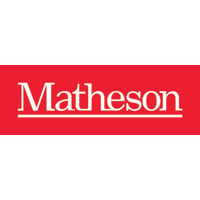

Head of Legal | Gas Networks Ireland



Ciara Russell
Head of Legal | Gas Networks Ireland
Team size: 9
What are the key projects that you have been involved in over the past 12 months?
The business on the transposition and implementation of the Fourth Gas Package, and particularly the corporate structuring requirements applicable to the various options set out for Transmission System Operators in the space of hydrogen and biomethane in the Package. This is a significant piece of EU law, which completely updates the legislative regime for the gas industry across Europe while also preparing for the further development of the hydrogen gas sector. We have also been leading workshops with our regulator, the Commission for Regulation of Utilities (CRU), and the Department of Climate, Energy and the Environment (DCEE) in relation to the drafting of legislation required to transpose the Directive into Irish law on or before the required transposition date of 5 August 2026. This work includes ensuring that relevant derogations, which would support the corporate restructuring of GNI in the future in order to participate in certain key activities, are appropriately set out in national legislation.
With regard to the Large Energy Users Connection Policy, we have been working closely with the CRU on their proposed Large Energy Users (LEU) Connections Policy, including the requirement for a new interruptible capacity product to be established within the current regulatory framework applicable to GNI over the past year, culminating in the consultation launched by the CRU earlier this year. A formal decision is expected shortly, which will support GNI in providing connections to the gas network for large energy users such as data centres and other large industrial customers, in a sustainable manner that facilitates the achievement of Ireland’s decarbonisation targets.
In the development of a suite of contracts with biomethane producers for direct connections to the gas network, one of GNI’s key strategic objectives is to replace natural gas with renewable gases, such as biomethane and green hydrogen, in order to transition to a net zero gas network by 2050. The GNI legal team has worked closely with the business to prepare a suite of bespoke technical commercial agreements, including a renewable natural gas connection agreement and a connected systems agreement with biomethane producers, to support renewable natural gas direct connections in Ireland.
Regarding innovation and collaboration agreements, the GNI Legal Team works closely with the GNI Innovation and Technical teams to understand exactly what is required and to provide the necessary legal scaffolding and practical solutions. This support ranges from advising on the legal and regulatory framework to drafting and negotiating collaboration agreements, consultancy agreements, grant agreements and targeted project research agreements.
The construction of a central grid injection facility in Mitchelstown, Co. Cork, which will provide a route to market for biomethane producers, is also central to working towards this objective. This will be the first facility of its kind in Ireland, and to deliver it in a timely manner a blend of agile strategic thinking and practical, solution-focused legal support is required. The GNI Legal Team has been involved in supporting this project from the outset and continues to advise on a wide range of matters, including contractual structures, project consents, and all legislative and regulatory requirements.
Have you had any experiences during your career as a lawyer that stand out as particularly unique or interesting?
I had the opportunity to act as Business Lead for all legal, governance, and regulatory matters arising from a significant and complex restructuring of Ervia, GNI, and Uisce Éireann (formerly Irish Water), following the Government’s decision to bring Uisce Éireann under direct government ownership and to establish GNI and Uisce Éireann as standalone utilities. The former parent company, Ervia, was dissolved, with all of its assets, liabilities, and statutory functions transferring to GNI and Uisce Éireann as appropriate. I worked closely with senior management, the Boards, and key external stakeholders, including GNI’s majority-shareholding Minister, the Minister for Housing, Local Government and Heritage, and DCEE, ensuring that all nuances and legal concerns regarding the legislation implementing the separation of Uisce Éireann and the transfer of Ervia’s remaining assets and liabilities to GNI were clearly understood and their implications appreciated as matters progressed.
The final step of the project was completed on 1 June 2024, with the integration of Ervia’s remaining business into GNI and the dissolution of Ervia occurring on that date. The project challenged both my legal and commercial skills across a broad scope of subject matters, including amending legislation, updating the group companies’ constitutions, reviewing all key contracts, data, IP, property, employee arrangements (including pensions), and licences transitioning to GNI as a result of the restructure. I further developed and strengthened skills essential to my current role as Head of Legal, particularly in relationship building, stakeholder engagement and management.
What do you think are the most important attributes for a modern in-house counsel to possess?
It is vital that an in-house legal team works closely and collaboratively with colleagues across the business to properly understand its strategic objectives and the challenges that arise, including legal risk, so that a path forward addressing such risk can be identified and supported. To ensure that the GNI legal team provides effective and timely advice across the organisation, we operate a business partnership model across six core pillar areas, with designated legal team members leading specific areas and liaising with colleagues across the organisation, placing service excellence and collaboration at the heart of everything we do.